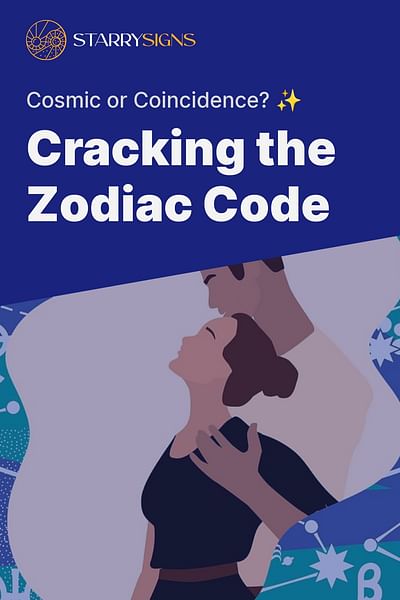Astrid Vega is an astrology enthusiast with a passion for writing. She has spent years studying the zodiac signs, making her an expert in the field. Astrid's articles are filled with insightful and engaging content that will help you understand the universe better.
Do zodiac signs actually hold any significance or are they merely human constructs? This question has sparked numerous debates among astrologers, scientists, and curious minds alike. The answer, as with many things in life, lies somewhere in the middle.
Unraveling the Mysteries: How Zodiac Signs Shape Us 🌌
Zodiac signs, based on the positions of celestial bodies at the time of our birth, are believed to influence our personality, behavior, and destiny. These signs, part of an ancient wisdom known as astrology, have been guiding humans for thousands of years. The 12 signs of the zodiac, each with its unique traits, strengths, and weaknesses, provide a celestial roadmap guiding us through life's journey.
Many people find solace and guidance in their zodiac signs, using them as a tool for self-reflection and understanding their place in the universe. They can provide insight into our relationships, careers, and personal growth.
For instance, a Capricorn is known for their practicality and ambition, often excelling in structured environments. An Aries, on the other hand, is known for their courage and leadership skills. These traits can help individuals understand their strengths and areas for improvement.
A Skeptic's Guide: Are Zodiac Signs Just Human Inventions? 🤔
On the other side of the coin, critics argue that zodiac signs are merely human constructs. They point to the fact that astrology isn't a science, and there's no empirical evidence proving the correlation between celestial bodies and human behavior.
Detractors often cite the Barnum Effect, a psychological phenomenon where people believe vague, general statements about personality are uniquely applicable to them. Basically, most horoscope descriptions are so universally applicable that anyone can relate to them, regardless of their zodiac sign.
Bridging the Zodiac Divide: Can Significance and Construct Coexist? ⚖️
So, are zodiac signs significant or just human constructs? The answer may be a bit of both. While there's no scientific proof that the position of the stars and planets at our birth directly influences our lives, there's no denying the profound psychological effects astrology can have.
Whether you believe in their celestial power or view them as psychological tools, zodiac signs can offer valuable insights into our personalities and lives. They can help us understand ourselves better and give us a unique perspective on our behaviors and relationships.
So, whether you're a fiery Aries, a communicative Gemini, or a balanced Libra, your zodiac sign holds significance in that it offers a lens through which to view and understand yourself and the world around you.
Interested in exploring more about the zodiac universe and understanding zodiac signs? Check out The Spiritual Connection Between Astrology and Our Zodiac Signs for more insights.
Test Your Zodiac Knowledge
How well do you know the zodiac universe? Test your knowledge with this fun and engaging quiz!
Learn more about Test Your Zodiac Knowledge 🌟 or discover other Starry Signs quizzes.
In conclusion, the significance of zodiac signs is subjective and varies from person to person. Some find them deeply meaningful, while others see them as mere constructs. But one thing is clear - zodiac signs have a profound impact on human culture and psychology, and their influence is here to stay.
Regardless of one's beliefs, it's undeniable that zodiac signs are deeply ingrained in our culture. Here's an Instagram post that beautifully showcases the different zodiac signs and their traits:
Each sign has its own distinct set of characteristics and traits, and these can resonate with people in different ways. Whether you believe in the astrological significance of these signs or view them as mere constructs, they undeniably form a part of our collective consciousness.















